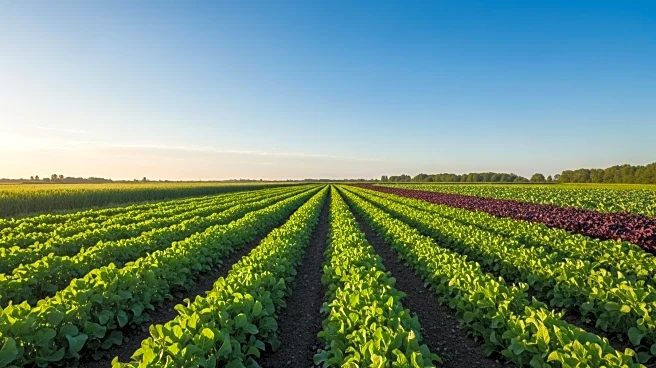What is the story about?
What's Happening?
The market for regenerative agriculture certification, verification, and digital solutions is projected to grow significantly, with a forecasted compound annual growth rate (CAGR) of 19.7% from 2025 to 2034. This growth is driven by increasing consumer demand for sustainably produced food and the need for reliable verification of regenerative practices. The market includes various solutions such as certification programs, verification technologies, and digital platforms. These tools are designed to track and confirm adherence to regenerative principles, using technologies like blockchain, data analytics, and satellite imaging. The market is also supported by emerging carbon markets and payment schemes for ecosystem services, providing economic incentives for farmers to adopt regenerative practices.
Why It's Important?
Regenerative agriculture offers a sustainable approach to farming that can restore degraded land while maintaining productivity. The growth of this market reflects a broader shift towards sustainable food production, driven by consumer demand and regulatory pressures. By providing verifiable data on regenerative practices, these solutions enhance transparency and trust in the food supply chain. This is crucial for businesses and investors seeking to manage risks and evaluate the impact of their sourcing decisions. Additionally, the adoption of digital verification tools supports compliance with sustainability reporting requirements, further accelerating the transition to regenerative agriculture.
What's Next?
As the market for regenerative agriculture solutions expands, there will be increased opportunities for farmers, agribusinesses, and regulatory bodies to engage with these technologies. The development of new certification programs and digital platforms will continue to evolve, offering more precise and scalable monitoring methods. This growth is expected to drive further innovation in the sector, with advancements in sensor technology, AI, and blockchain playing a key role. The market's expansion will also likely lead to increased collaboration between stakeholders, including governments, NGOs, and private sector players, to support the widespread adoption of regenerative practices.
















